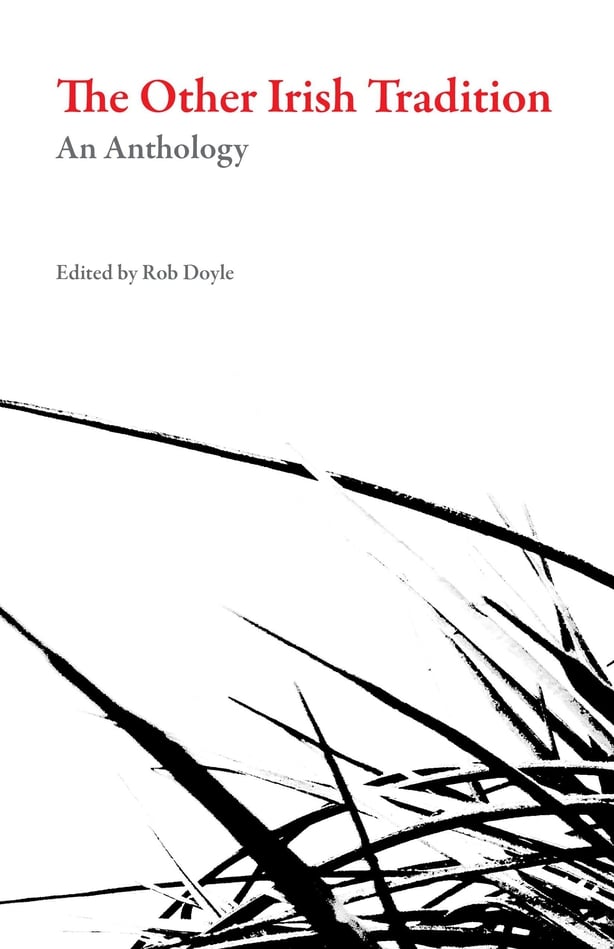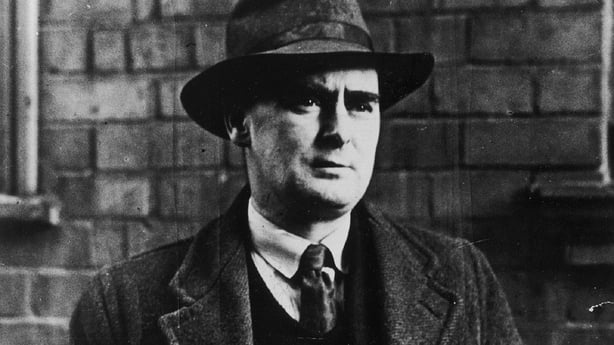Rob Doyle’s selection of writings from `the experimental strain in Irish writing’ runs from Jonathan Swift to June Caldwell, taking in Flann O‘Brien, Dorothy Nelson and Aidan Higgins along the way.
Doyle makes no great claims and is tentative in his introduction to 23 pieces from the off-piste, whimsical or surreal ski-slope of Irish writing, gathered here in 477 pages. `This anthology does not propose a new canon, but rather offers an alternative, refracted perspective on the canon that exists, ‘ he writes in the introduction, while his measured summations on each of the artists included nicely whet the appetite.
The anthology begins with Jonathan Swift’s A Modest Proposal, which presents its shocking idea, to wit, the killing of children for sustenance. Then through a series of judicious asides, dropped like bits of paper in a paper chase, the essay shows itself to be a commentary on grave societal inequalities in the Ireland of his 18th century era.
Laurence Sterne’s From the Life & Opinions of Tristram Shandy - essential reading - follows, before we are presented with James Clarence Mangan’s A Sixty-Drop Dose of Laudanum. This series of bon mots and aperçus amounts to a wise perspective on unchangeable human foibles and insecurities, plus ça change. Born the year of Robert Emmet’s execution in 1803, Mangan, who was best known for the romantic ballad, My Dark Rosaleen, died in 1849 from alcoholism.
George Egerton was the pen-name of Mary Chavelita Dunne Bright, who was born the daughter of an Irish Catholic father in 1859 in Melbourne. The author considered herself ‘intensely Irish’ and her story The Spell of the White Elf is a captivating exercise in what might be termed ‘light Gothic,’ a variant on the strange foundling or fairy child trope.

In Flann O’Brien’s Scenes in A Novel - which is in fact a short story – the characters rebel against the author. It’s a humorous piece, but not in the same league by any means as the well-oiled genius of arguably O’Brien’s greatest work, The Third Policeman.

Aidan Higgins’ Helsingor Station, a curious amalgam of melodrama as memoir, is a rather gloomy piece about a tormented love affair. Its mournful bohemian scenario seems effete, sententious and simply not credible to your humble reader, but others may beg to differ.
Samuel Beckett’s The End details the last days of its would-be suicidal narrator. It is no less gloomy than the Higgins piece, but it has the kind of narrative integrity you expect from Beckett. An extract from Alf MacLochlainn’s novella Out of Focus left me itching for it to end, not a pleasant feeling. Yes, it is very different and is doing something almost anti-novel, like the work of Robbe-Grillet, but he lost this reader unfortunately. On the other hand, Dorothy Nelson’s corrosive account of child abuse has its own slow-burning power and pathos in the extract chosen from her 1980s novel, In Night’s City.
Anakana Schofield’s extract from her novel Martin John is an unhinged missive from an Irishman living seemingly by his neurotic wits in London, while Philip Ó Ceallaigh’s raw, sexy The Song of Songs is set in a Romanian tower block. Taken from the author’s The Pleasant Light of Day collection, it is one of the stronger stories from the contemporary end of Rob Doyle’s survey.

Leitrim Flip, June Caldwell’s story of an S & M club wild in the country - well, a Leitrim house - is pitiless and bleak in an Irvine Welsh kind of way. Its chilly, unfeeling mechanics may leave you cold, which is perhaps the author’s very intention. All in all, Rob Doyle's pickings are a provocative selection which stand as a useful supplement to what might be cautiously constituted the orthodox Irish canon.
Read an extract here from James Clarence Mangan’s A Sixty-Drop Dose of Laudanum







